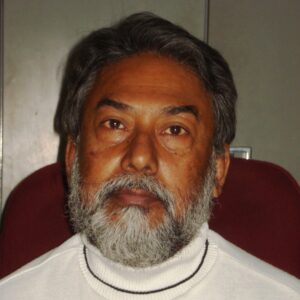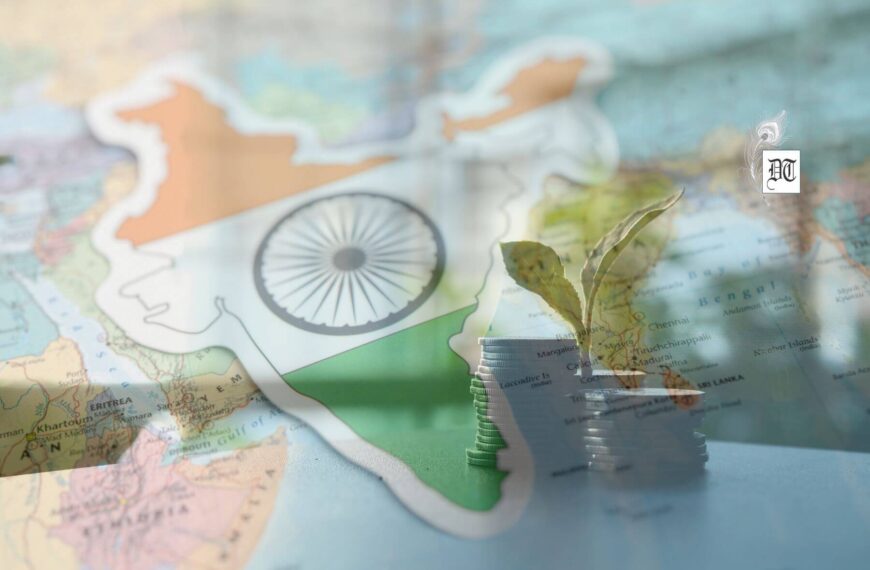Bhaskar tells us that some of the RBI officials are unrelenting, however, for ‘feeling humiliated’ by the events, since demonetisation. They wrote to newly appointed (read fixed) RBI Governor, Urjit Patel, after the departure of Rajan, protesting against operational ‘mismanagement’ by the government for demolishing its autonomy by appointing an official for currency coordination that they see as a “blatant encroachment” of its exclusive turf of currency management. They also allegedly opined that the autonomy and image of RBI have been “dented beyond repair” reminding that the RBI has been discharging the role of currency management since it was set up in 1935. The reputed officials opined that the Monetary Authority did not need “any assistance” and the interference from the Ministry of Finance in the past eight decades. In another case, the Parliamentary Accounts Committee (PAC) may ask the Governor of Reserve Bank of India to explain Demonetisation by causes and consequences. He examines the role of commoners in the backdrop of various national issues. Last but not the least, he expands his narrative to review the role of the common man, in India, historically. Here’s the weekly column, by the prominent social scientist and economist, exclusively in Different Truths.
Recently, I wrote on Un-Sen expressing my humble opinion that there cannot be any autonomy of any institution be it related to money, education, health or whatever when it is the Keynesian system with the state as the super-institution. I stand by what I expressed. But now new problems have come to light, other than the threats to the life of the officials of the RBI, as claimed and reported in the electronic media. Now, the officials of the RBI have gathered the courage to say that they felt humiliated at the unwarranted intervention of the government at the Centre. No one feels humiliated when puppets are ‘fixed’ in the highest positions in many institutions, in India (it might be elsewhere too), to smoothly run the ideas (read agenda) of the ruling party. Some others wait to gain from the processes that go on unquestionably. The public sector enterprises bear testimony to this.
Some of the RBI officials are unrelenting, however, for ‘feeling humiliated’ by the events, since demonetisation. They wrote to newly appointed (read fixed) RBI Governor, Urjit Patel, after the departure of Rajan, protesting against operational ‘mismanagement’ by the government for demolishing its autonomy by appointing an official for currency coordination that they see as a “blatant encroachment” of its exclusive turf of currency management. They also allegedly opined that the autonomy and image of RBI has been “dented beyond repair” reminding that the RBI has been discharging the role of currency management since it was set up in 1935. The reputed officials opined that the Monetary Authority did not need “any assistance” and the interference from the Ministry of Finance in the past eight decades.
My problem is if it did not need any support (read intervention) in the past, it does not mean that it does not support it, now, particularly, with a “fixed” person at the helm of affairs. The officials have urged the Governor of RBI to do away with the unwarranted external/exogenous support without understanding that it is beyond him to assert in the direction as thought warranted by the officials. Autonomy of a sub-set is also determined by the whole set and that seems to be the case now. It is the state – the whole set.
Demonetisation or Whatever!
Serious researchers that constitute less than one per cent of the population above the age of 18 in India have a high propensity to get involved in whatever comes to their way – recent episodes include Indo-Pak relations, JNU phenomena, partially HCU event, cow-related patriotism, Dadri (in UP) lynching-related communalistic tilt and all those. The latest in the series is the Demonetisation episode. The latest news in circulation is that the Parliamentary Accounts Committee (PAC) may ask the Governor of Reserve Bank of India to explain
Demonetisation by causes and consequences.
Where are the commoners in these episodes? They participate and abstaining from participating depending on the gossip, the mobilisation, the dividends on participation, the expression of solidarity (often for wrong reasons). They hardly understand the role of RBI in Demonetisation or some such aspects and hardly understand the role and power of PAC. India is full of laws, institutions and machineries at the hand of the government – more than enough to make commoners imagine the unfathomable power that the government may use on them – so commoners do not question much – even if they gossip and in those processes some questions come up, those remain of no or little significance. Commoners are kept busy on survival track and the commoners remain happy on that track without understanding the pains of the derailment.
Commoners were busy with Kanhaiya and commoners are busy with Draupadi (victims of forced undressing/rape, though in India’s epics, Ramayana and Mahabharata, I did not hear rape, it was perhaps invented later). Researchers get surprised why do commoners do not question or why do they keep mum. This is the problem of the researchers – the commoners are happy in their day to day life.
With apology I shall request the researchers to move in disguise the corners of India – excepting Coffee House or like locations in India – they will definitely get the answer self-posed why the subalterns do not speak in the public domain – with or without Demonetisation.
Patience of the People in India
I decided unilaterally to stop on issues where the state exercises its evil power, not for personal fear, but for the simple fact that the people in India have learnt to live with it. But then, today again, I had to go through the following headline: ‘Demonetisation should have triggered huge protests against Modi government. Why didn’t that happen?’ And then the author proposed serious analysis. My simple response is, India is a land of Gandhi-Buddha-Chaitannya and then conversion of Chandashok to Dharmashok. So people in India are very patient – they do not protest. Time has been ripe enough to forget Bhagat Singh or that might have been a historical aberration.
I have seen many dying on the pavements, adjacent to the Commissioner’s Bungalow, not because of the cold alone, but actually due to hunger, around 2012, rather than forcibly enter into a food shop to snatch food for survival. I have seen guardians of the victims of rape desperately trying to hide it for the girl had to be married. Through print-electronic media every day I consume deaths that are both private and public (read state sponsored) that include rape by an individual or a gang, organised riots, mass molestation, custodial deaths, encounter (mostly fake) deaths, honour killings and so on.
Mass mobilisation was an even of the remote past led by Gandhi, Netaji (Subhas Bose) and so on; the purpose was well understood and the enemy was well defined. The years 1757-1947 could also produce great sons and daughters of British India that produced literature along with trying to draw attention to and resisting colonial oppression. Post-1947, it is independent India – enemy is not there other than enemy of the state like Naxalites, in West Bengal, during the late 1960s, and Maoists, in Chattisgarh, during the last two decades or so. So now we are all components of the state. So now we are all components of the state.
Now, demonetisation. I found commoners happy to stand in a long queue not only in UP but also in West Bengal, in the latter some saying that the rich people (salary more than Rs. one lakh per month) are standing with the poor (seasonal income less than Rs. 10,000 per month) and most of them, in both the states, I surveyed in a non-structured manner were happy because they understood that ‘Modiji kala dhan nikaal ke dikhaya’ (beloved PM Modi has brought out black money) though most of them hardly understand what black money is.
Ignorance is bliss – so people are happy – they do not resist, they do not protest. They have families, mostly nuclear. So social support and community supports are gone. Also market has put the commoners on the dock. People respect (fear) power. Commoners know that in case they question, others will not come forward and the protestor will pay a heavy price engineered by state agencies like CBI, CID, IB and the protestor may be under sedition charges and some such charges, which again they do not understand. So, better to keep mum.
Who says India is impatient? Most of the people here are more patient than what is warranted – so they invite conquerors to come and rule them. Britain was the latest but may not be the last one.
©Dr. Bhaskar Majumder
Pictures from the internet.








 By
By


 By
By